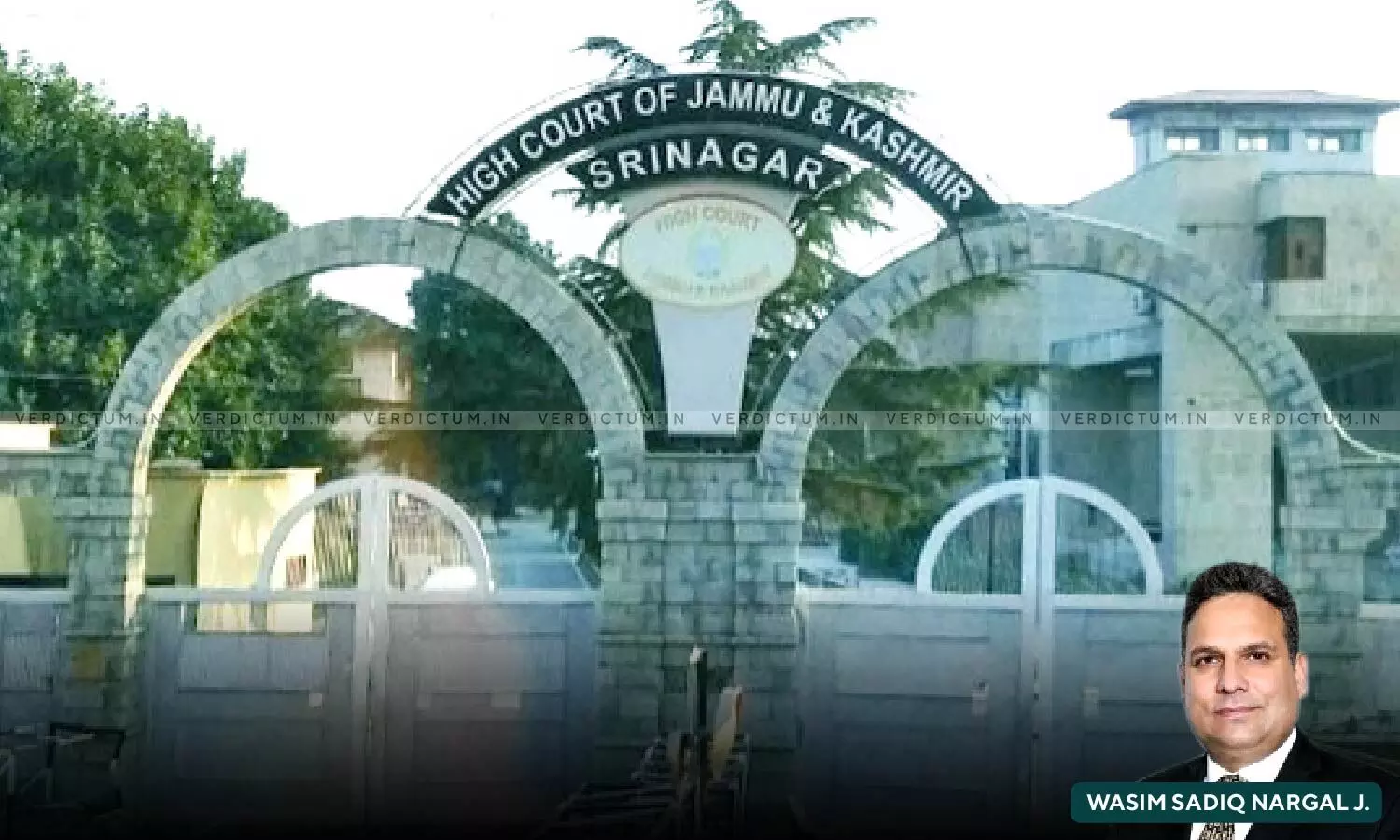
Banks Cannot Be Injuncted From Enforcing Mortgages For Realization Of Dues Once Account Declared As NPA: J&K&L High Court
 |
|While highlighting that one who seeks equitable relief must do equity also and demonstrate bonafide and a person guilty of suppression of material facts is not entitled to relief under Order XXXIX Rules 1 and 2 of CPC, the Jammu & Kashmir & Ladakh High Court ruled that a party whose case is based on falsehood has no right to approach this court.
Observing that the plaintiff has tried to abuse the process of law by filing a suit to restrain the bank to alienate the property which was mortgaged on the grounds which are not sustainable in the eyes of the law, the High Court held that the plaintiff has tried to abuse the process of court by filing a suit mischievously and after having failed to get the interim protection has filed the present appeal on false and flimsy grounds which are not sustainable in the eyes of law.
The ruling came while considering a suit filed by the Plaintiff for a declaration that the deed of further charge of mortgage of land cum additional mortgage executed by the plaintiff in favour of the defendant-Bank as null and void and not operative ineffective and not legally enforceable and cannot be acted upon by the defendants for alienation in any manner.
Finding that the plaintiff after having failed to seek any relief against the proceedings initiated under the SARFAESI Act has mischievously approached the court with unclean hands by suppressing material facts, a Single Judge Bench of Justice Wasim Sadiq Nargal observed that “Since the account of the plaintiff has become NPA way back in the year 2016, and the defendant-Bank had threatened to enforce the said mortgages for realization of the alleged dues, the plaintiff to stall the said process has mischievously filed the suit before the court challenging the mortgages so that bank cannot alienate the property. Thus, in the light of the bar created by Section 34 of the SARFAESI Act even otherwise also no injunction can be granted even for any action to be taken in pursuance of any power conferred under the aforesaid Act”.
“It is a classic case where the plaintiff who himself is a party to the execution of the mortgage deeds has subsequently questioned the execution thereof after drawing loan facility and on the basis thereof, the plaintiff cannot absolve him of his liability under the SARFAESI Act”, added the Bench.
Advocate Parveen Kapahi appeared for the Appellant, whereas Advocate Jugal Kishore appeared for the Respondent.
The brief facts of the case were that the plaintiff is a promoter of M/s New Jammu Flour Mill Private Limited Adha Sarore District Samba and was running a floor mill on the said land. The defendants approached him for a grant of certain loan facilities and impelled the plaintiff to raise loan facilities from their bank after taking over from Punjab and Sind Bank. The defendants wanted to take over the accounts of the plaintiff from the said bank and offered the enhancement of loan facilities which was availed of by the plaintiff from the Punjab and Sind Bank. The defendants took over the loan and security of immovable property which was the subject matter of the suit and was vested upon the plaintiff under Section 08 of Agrarian Reforms Act. The defendants got executed mortgages for the security of certain loan facilities by creating mortgages without possession of the land. These mortgages also covered the other properties belonging to the plaintiff situated in Jammu. Later, the account of the plaintiff became non-performance assets in the year 2016 and the defendants started threatening to enforce the said mortgages for realization of their alleged dues. The defendants also initiated action under the SARFAESI Act by issuing a notice under Section 13(2) of the Act. The plaintiff then approached the court seeking a temporary injunction to restrain the bank from enforcing the mortgage deeds, which was dismissed. Hence, the plaintiff appealed before the High Court.
After considering the submission, the Bench found that the prayer for the grant of an interlocutory injunction is at a stage when the existence of legal rights asserted by the plaintiff and its alleged violation are both contested and remained uncertain till they are established at the trial by way of evidence.
The Bench also noted that the plaintiff has applied to the Government for according sanction for the conversion of the land in question from Agricultural use to non-agricultural use on the ground that industrial units are existing on the said land and the said permission was granted by the Government, and this aspect of the matter has been deliberately concealed by the plaintiff with malafide intention in the suit.
Finding that plaintiff is the mortgager of the suit property and by his own conduct, he has mortgaged the said property with the bank and has secured the loan, the Bench clarified that now he is estopped under law from questioning the validity of the said mortgage deed by way of suit before the court.
“Section 34 of the SARFAESI Act creates a bar and provides that no injunction shall be granted by any court or other authority in respect of any action taken or to be taken in pursuance of any power conferred by or under this Act or under the recovery of debts due to the bank and Financial Institution Act, 1993”, added the Bench.
The High Court therefore concluded that where the proceedings under SARFAESI Act stood initiated, the suit would not be maintainable and the remedy for the aggrieved person lies under Section 17 of the said Act which is a more efficacious and adequate remedy to the party aggrieved.
Cause Title: Raj Kumar Gupta v. Bank of India and Anr.
Click here to read/download the Judgment